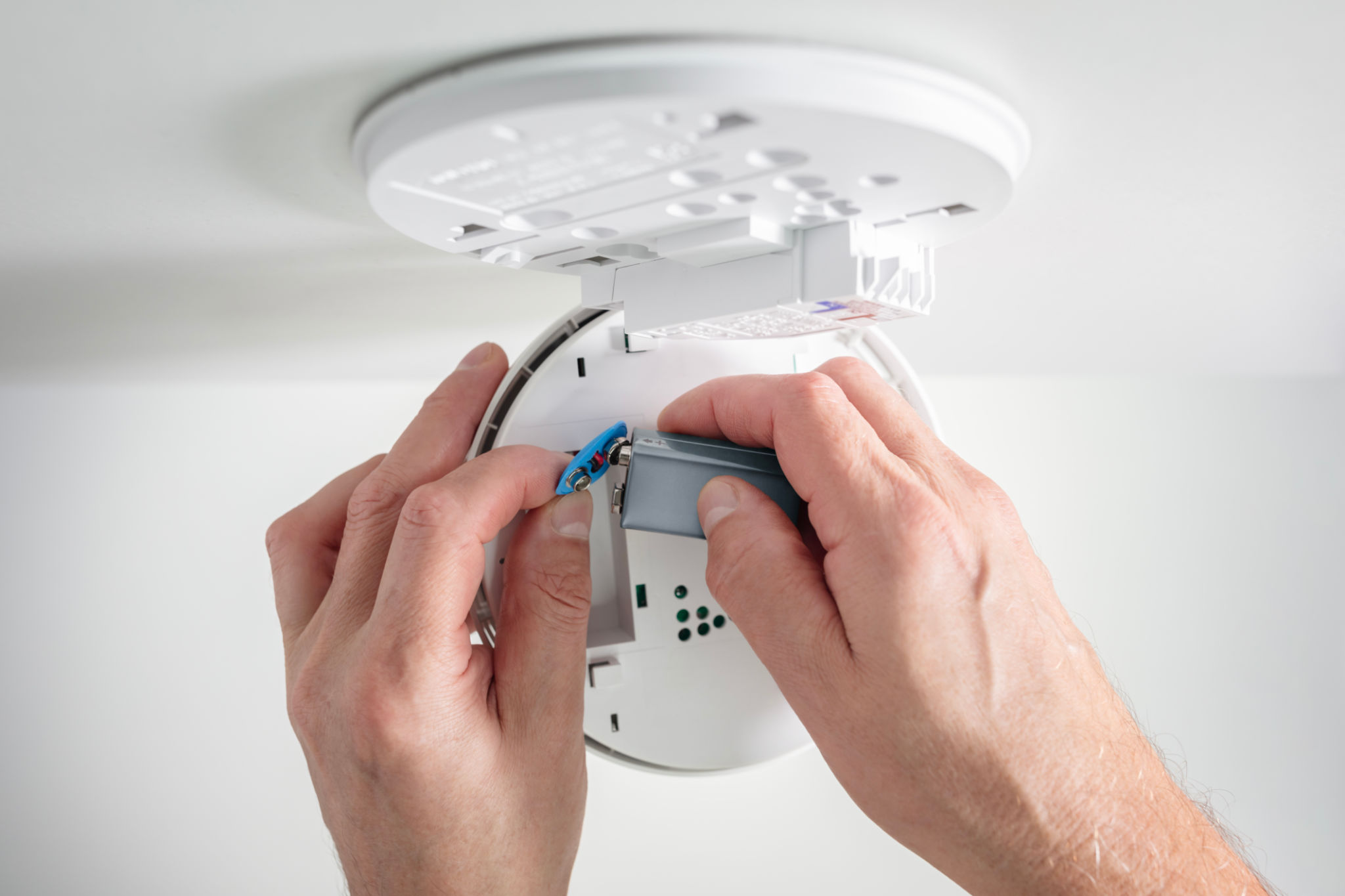Smoke Alarm Compliance Certificate QLD: Essential Guide for Home Sellers in 2025
Queensland home sellers face strict fire safety rules. These rules protect buyers and families. Moreover, they ensure smooth property transactions. This guide explores smoke alarm compliance certificate QLD requirements. It helps you navigate the process confidently.
First, understand the basics. Then, learn installation steps. Finally, discover how to avoid penalties. Full compliance has become mandatory. Therefore, act now. This article provides clear, actionable advice. It covers everything from legal obligations to practical tips.
Understanding Queensland's Smoke Alarm Laws for Property Sales
Queensland updated its fire safety laws in recent years. These changes aim to reduce fire risks in homes. Specifically, the Fire and Emergency Services Act 1990 sets the standards. Sellers must comply before listing properties. Otherwise, deals may stall or fail. For instance, non-compliant homes deter buyers. Additionally, fines reach up to $1,313.30 per violation. However, preparation simplifies the process.
The laws apply to all residential properties. This includes houses, townhouses, and units. Even owner-occupied homes must meet the rules by January 1, 2025. Furthermore, rentals faced earlier deadlines. Yet, sellers bear the main responsibility during transfers. Buyers expect safe, ready-to-occupy spaces. Thus, compliance builds trust and speeds sales.
Transitioning to specifics, photoelectric alarms lead the requirements. These detect smoldering fires better than older models. Consequently, they save lives. Moreover, interconnection ensures all alarms sound together. This alerts everyone in the home quickly. As a result, evacuation becomes easier. In short, these features define compliance.
Sellers often overlook these details. However, ignorance invites complications. For example, outdated alarms trigger inspections. Then, settlement delays occur. To avoid this, review your current setup. Next, consult professionals if needed. This proactive approach pays off.

What Is a Smoke Alarm Compliance Certificate in Queensland?
A smoke alarm compliance certificate QLD verifies legal standards. It proves your property meets fire safety rules. Licensed electricians or installers issue it after checks. Importantly, it details alarm types, locations, and test dates. Without it, sellers risk legal issues.
For hardwired systems, certificates follow strict protocols. Under the Electrical Safety Regulation 2013, section 227 mandates this. Electricians provide it post-installation. On the other hand, wireless 10-year battery alarms differ. Here, no formal certificate requires submission. Yet, sellers must still declare compliance.
This distinction confuses many. However, clarity comes from official sources. The Queensland Fire Department (QFD) explains it well. Additionally, the Real Estate Institute of Queensland (REIQ) offers guidance. Their fact sheets confirm: wireless setups skip the certificate. But, all alarms must interconnect and use photoelectric technology.
In practice, certificates serve as proof. Buyers request them during due diligence. Moreover, conveyancers include them in paperwork. Thus, having one ready streamlines closings. Furthermore, it reassures agents and inspectors. Overall, this document symbolizes safety commitment.
Sellers benefit from early certification. For instance, it prevents last-minute rushes. Consequently, stress levels drop. Also, costs stay predictable. In essence, view it as an investment in hassle-free sales.

Key Requirements for Smoke Alarms When Selling a Home in QLD
Home sellers in Queensland must install specific alarms. First, use photoelectric models only. These comply with Australian Standard AS 3786:2014. Second, ensure interconnection across the property. Third, place them strategically. For example, install one in every bedroom. Additionally, add them in hallways leading to bedrooms. Moreover, cover each storey level.
Properties without bedrooms need alarms near exits. This setup maximizes early warnings. Furthermore, alarms must power reliably. Options include hardwired connections or sealed 10-year batteries. However, avoid removable batteries. They fail compliance checks.
By January 1, 2025, all homes must upgrade. This deadline applies universally. Rentals complied earlier, in 2022. Now, owner-sellers catch up. Consequently, market pressure builds. Buyers demand proof of readiness. Thus, non-updated homes sell slower. Or, they fetch lower prices.
Maintenance matters too. Test alarms monthly. Clean them quarterly. Replace every 10 years. Records of these actions support your certificate. In addition, licensed pros handle installations. DIY efforts often miss standards. Therefore, hire experts for peace of mind.
These rules evolve. For instance, 2027 brings broader mandates. Yet, 2025 focuses on sales. Prepare accordingly. This ensures your listing shines.

Step-by-Step Guide to Obtaining Your Smoke Alarm Compliance Certificate QLD
Start with a property assessment. Check existing alarms against QLD rules. Identify gaps quickly. For example, count bedrooms and storeys. Note power sources too. This initial scan saves time.
Next, contact a licensed installer. Search QFD's registry for qualified pros. They evaluate needs accurately. Moreover, they quote fair prices. Typically, costs range from $200 to $800. Factors like home size influence this.
Then, schedule the upgrade. Installers fit photoelectric, interconnected units. They position them per code. For instance, ceiling mounts work best. Avoid walls unless specified. Post-install, they test everything. This confirms functionality.
Afterward, request the certificate. For hardwired, it's automatic. Wireless skips formal paperwork. However, get a written statement anyway. It serves as evidence. Additionally, keep receipts and photos. These bolster your file.
Finally, integrate it into sale docs. Share with your real estate agent. Include in contract disclosures. At settlement, complete Form 24. This lodges with Titles Queensland. Thus, the transfer completes smoothly.
This process takes weeks, not months. Start early. Consequently, avoid rushed errors. Many sellers finish in days with pros.
Common Myths About Smoke Alarm Compliance for QLD Home Sellers
Myth one: All alarms need certificates. Reality checks this. Wireless batteries exempt sellers from providing one. However, compliance declarations remain essential. Buyers verify through inspections.
Myth two: Old ionisation alarms suffice. Wrong. Queensland bans them for sales. Photoelectric only. Moreover, interconnection is non-negotiable. Upgrading prevents rejections.
Myth three: Tenants handle upgrades. No. Sellers own the duty. Even in rentals, vendors certify before transfer. This shifts burden appropriately.
Myth four: DIY saves money. Often, it backfires. Unlicensed work voids warranties. Fines follow too. Pros ensure code adherence.
Myth five: Deadlines flex for sales. Authorities enforce strictly. Delays cost thousands in negotiations. Prepare ahead.
Debunking these clears confusion. Consequently, sellers act confidently. Knowledge empowers better decisions.

The Role of Form 24 in Smoke Alarm Declarations for Property Transfers
Form 24 standardizes compliance proofs. Sellers declare smoke alarm status here. It accompanies title transfers. Titles Queensland receives it at settlement. Moreover, QFD accesses it for audits.
This form lists key details. For example, confirm photoelectric types. Note interconnection features. Disclose test dates too. Inaccuracies invite penalties. Thus, double-check entries.
Conveyancers usually prepare it. They guide sellers through sections. However, understand your inputs. This avoids oversights. Additionally, attach supporting docs. Certificates enhance credibility.
Buyers rely on Form 24. It assures legal safety. Furthermore, it triggers inspections if needed. Pre-settlement checks verify claims. As a result, disputes minimize.
In 2025, Form 24 gains prominence. With deadlines looming, scrutiny rises. Complete it meticulously. This safeguards your transaction.
How Non-Compliance with QLD Smoke Alarm Laws Affects Home Sales
Non-compliance halts sales. Buyers spot issues in contracts. They demand fixes or discounts. For instance, upgrades cost $500 plus. Sellers absorb this hit.
Fines compound problems. QFD issues $1,313.30 per missing alarm. Multiple violations multiply costs. Moreover, legal fees add up. Settlements drag on months.
Reputation suffers too. Agents flag non-compliant listings. They attract fewer offers. Consequently, prices drop 5-10%. Time on market extends.
Insurance complications arise. Policies exclude fire claims on faulty setups. Buyers learn this post-purchase. Lawsuits follow. Sellers face callbacks.
Prevention beats cure. Audit now. Upgrade promptly. This maintains value and speed.

Choosing the Right Smoke Alarms: Photoelectric vs. Other Types for QLD Compliance
Photoelectric alarms excel in QLD. They sense smoke particles fast. Ionisation models lag on smoldering fires. Thus, regulators favor photoelectric.
Interconnection links units. One detects; all alert. This covers large homes effectively. Standalone alarms fail this test.
Power choices matter. Hardwired offers reliability. No battery swaps needed. Wireless 10-year sealed units suit renters. Both pass muster.
Brands like First Alert or Kidde comply. Check AS 3786 labels. Moreover, buy from licensed suppliers. Fakes undermine safety.
For sales, prioritize durability. Alarms last 10 years. Plan replacements ahead. This keeps certificates current.
Hiring Licensed Electricians for Smoke Alarm Installation in Queensland
Licensed pros guarantee quality. QFD lists approved electricians. Verify credentials online. Unlicensed work risks fines.
They assess layouts uniquely. For example, beam ceilings need adjustments. Standard installs overlook this. Pros adapt flawlessly.
Costs reflect expertise. Basic jobs run $300. Complex ones hit $1,000. Quotes compare easily. Shop around wisely.
Post-job, they issue certificates. Hardwired mandates this. It details wiring compliance. Keep it filed safely.
Reviews guide selections. Past clients share experiences. High ratings signal reliability. Book soon; demand surges in 2025.
Costs Involved in Achieving Smoke Alarm Compliance Certificate QLD
Assessment fees start low. Electricians charge $100-200 for checks. This uncovers needs upfront.
Installation varies widely. Single alarms cost $150. Full-home setups reach $600. Interconnection adds $50 per unit.
Certificates cost little extra. Hardwired ones bundle in. Wireless statements run $50.
Ongoing maintenance budgets $100 yearly. Tests and cleans prevent drifts.
Tax deductions apply for rentals. Homeowners claim via renovations. Consult accountants for details.
Overall, invest $400 average. It yields faster sales and higher prices.

Timeline for Upgrading Smoke Alarms Before Selling Your QLD Property
Begin three months pre-listing. Assess in week one. Book pros immediately.
Install within two weeks. Tests follow suit. Certificate arrives days later.
Allow buffer for tweaks. Unexpected faults arise. Fix them swiftly.
List once certified. Buyers inspect confidently. Settlement flows in 30-60 days.
Rush jobs spike errors. Plan leisurely. Success follows patience.
Benefits of Compliant Smoke Alarms Beyond Just Selling Your Home
Safety tops the list. Early alerts save lives. Families escape unharmed.
Property values rise. Compliant homes attract premiums. Buyers pay more for peace.
Insurance premiums drop. Insurers reward proactive owners. Savings compound yearly.
Resale eases future. Updated systems impress. No upgrade hassles recur.
Community impact grows. Safer neighborhoods form. Everyone benefits collectively.
Future-Proofing Your QLD Property: Preparing for 2027 Smoke Alarm Updates
2027 mandates expand rules. All dwellings comply fully. Caravans join too.
Sellers today gain edges. Upgrades now cover future sales. No reworks needed.
Monitor QFD announcements. Laws evolve annually. Stay informed via newsletters.
Invest in smart alarms. They integrate with apps. Modern buyers love tech.
Long-term, this builds equity. Compliant homes endure market shifts.

FAQs: Smoke Alarm Compliance Certificate QLD for Home Sellers
Do I need a certificate for wireless alarms? No. Declarations suffice. However, keep records handy.
What if my home has no bedrooms? Install near exits. One per storey works.
Can buyers inspect pre-settlement? Yes. Contracts allow electrician visits.Fines for late compliance? Up to $1,313.30 per alarm. Act fast.
Who issues Form 24? Conveyancers handle it. You provide inputs.
Rental vs. sale rules? Sales mirror rentals now. Full photoelectric required.
DIY installation allowed? No. Licensed only. Safety demands it.How often test alarms? Monthly. Tenants share duty too.
Cost for townhouses? Similar to houses. $400-700 typical.
2025 deadline flexible? No. Enforced strictly. Prepare accordingly.
This covers core queries. Consult pros for uniques.
Expert Tips for Stress-Free Smoke Alarm Compliance When Selling in Queensland
Partner with agents early. They flag compliance needs. Guidance streamlines efforts.
Document everything. Photos, invoices, tests build strong cases.
Educate family. They test alarms routinely. Habits stick post-sale.
Choose eco-friendly models. Modern alarms reduce waste. Buyers appreciate green.
Network locally. QLD seller groups share insights. Experiences guide you.
Finally, celebrate compliance. Safe homes honor legacies. Sell with pride.
In conclusion, master smoke alarm compliance certificate QLD rules. They safeguard sales and lives. Start today. Your future buyers thank you. Properties thrive when safe. Act decisively. Success awaits compliant sellers.
Contact Mint Legal Brisbane for any further assistance!